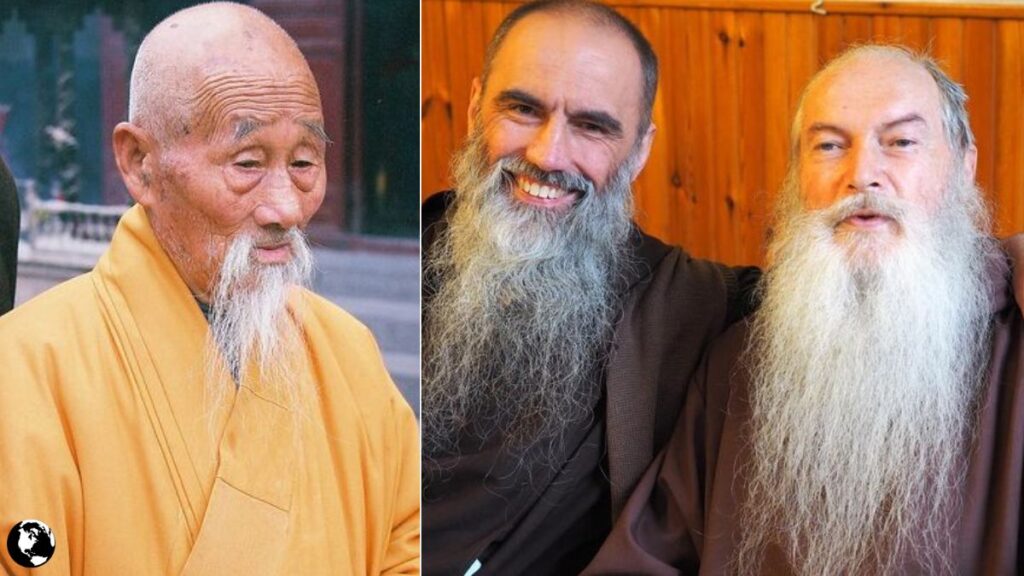In a world obsessed with appearance and constant noise, the beard monk stands as a symbol of calm strength and timeless wisdom. His bearded face, peaceful demeanor, and humble robes represent a spiritual journey rooted in discipline, simplicity, and detachment from material desires. The image of a bearded monk continues to captivate imaginations across cultures, from ancient monasteries to modern mindfulness movements.
The philosophy of the beard monk reflects authenticity, patience, and inner growth. It’s not just about a beard—it’s about a way of life devoted to truth and simplicity.
The Symbolic Meaning Behind the Bearded Monk
The bearded monk is a timeless metaphor for wisdom accumulated through patience. In many traditions, a beard represents natural growth and spiritual evolution—unforced and aligned with nature.
For monks, facial hair often symbolizes freedom from vanity. The beard monk embodies inner peace and humility, reminding us that true enlightenment grows naturally, just like a beard—slowly and silently.
Ancient Traditions and the Bearded Aesthetic
In ancient cultures, beards were revered as marks of divine wisdom and strength. From Indian sadhus to Greek philosophers, the bearded monk archetype transcends geography and belief systems.
In Buddhist monasteries, some monks allow facial hair to grow as a sign of renunciation. Likewise, Christian desert fathers and Orthodox ascetics wore beards as symbols of piety and humility.
Thus, the beard monk represents a universal ideal—devotion, simplicity, and a profound connection to the sacred.
Why the Spiritual Monk Embodies Simplicity and Strength
At the heart of the spiritual monk’s appeal lies the perfect balance between simplicity and strength. His beard reflects his inner state—grounded, free, and at peace.
Spiritual strength doesn’t come from physical power but from mastering the mind. The bearded monk demonstrates that serenity and self-discipline are the greatest forms of strength.
The Bearded Monk in Eastern Spiritual Practices
In Eastern spirituality—especially within Buddhism, Taoism, and Hinduism—the beard monk symbolizes the shedding of ego and attachment. Whether it’s a Shaolin master meditating in silence or an Indian ascetic walking barefoot, the beard represents alignment with nature.
Eastern sages with beards were revered for their calmness and compassion. The bearded monk becomes a visual symbol of spiritual ripening—wisdom that grows slowly, like a sacred forest.
The Western Image of the Bearded Monk
In Western Christianity, the bearded monk is linked to saints and mystics such as Saint Anthony and Saint Francis. Their long beards reflected a life of devotion and withdrawal from worldly distractions.
Medieval paintings often depicted these monks with flowing beards, symbolizing divine insight and courage. Today, this image of the spiritual monk continues to resonate with people seeking simplicity and peace in modern life.
The Modern-Day “Beard Monk” Revival
Recently, the image of the beard monk has resurfaced across social media and wellness communities. Modern seekers use it as a metaphor for mindfulness, authenticity, and balance in a noisy digital age.
This revival isn’t about fashion—it’s about philosophy. The bearded monk inspires people to slow down, live intentionally, and reconnect with inner stillness.
Lessons from the Monk: Inner Peace Over Appearance
The bearded monk teaches that peace is cultivated within, not achieved through appearances. His calm face and natural beard symbolize acceptance—the ability to let life unfold as it should.
He reminds us that beauty lies in truth. The spiritual monk’s presence challenges superficiality, urging us to focus on growth, gratitude, and stillness rather than perfection.
The Spiritual Monk and Mindful Living
To live like a beard monk is to live mindfully. Every action—from sipping tea to walking—becomes a sacred practice. This lifestyle celebrates simplicity and awareness, freeing the mind from distraction.
The bearded monk doesn’t chase success. He cultivates serenity and self-awareness. His beard becomes a timeline of patience, marking his quiet commitment to peace.
Discipline and the Power of Silence
Silence is the sacred tool of the spiritual monk. In silence, he listens deeply—to his thoughts, his breath, and his being. The growing of his beard reflects his dedication to time spent in stillness.
For the bearded monk, silence isn’t emptiness—it’s fullness. Through quiet contemplation, he finds wisdom and strength that no noise can offer.
The Cultural Legacy of the Bearded Monk
From Tibetan mountains to medieval abbeys, the bearded monk stands as an enduring symbol of humility, faith, and enlightenment. His image in art and literature continues to remind us that true power lies in surrender.
In a society obsessed with speed and image, the spiritual monk calls us back to authenticity—valuing depth, patience, and presence over possessions.
Embracing the Monk Within You
You don’t need to live in a monastery to embody the spirit of the bearded monk. It’s a mindset—living consciously, slowing down, and embracing your true self.
The beard monk encourages you to grow your own “inner beard” of wisdom—symbolizing patience, truth, and spiritual awareness.
Conclusion: The Enduring Message of the Beard Monk
The beard monk remains a timeless emblem of peace and wisdom. Across traditions and centuries, his image reminds us that enlightenment is not found in luxury but in simplicity.
To walk the path of the bearded monk is to honor silence, humility, and self-awareness—to live truthfully and let your life grow naturally, one peaceful moment at a time.
FAQs
1. What does a beard symbolize for monks?
It represents humility, spiritual growth, and patience.
2. Are beard monks found in specific religions?
Yes, across Buddhism, Christianity, Hinduism, and other monastic traditions.
3. Why do spiritual monks grow beards?
To symbolize detachment from vanity and alignment with nature.
4. Can modern people live like beard monks?
Absolutely—by practicing mindfulness, simplicity, and authenticity in daily life.
5. What lesson does the beard monk teach?
That inner peace, not appearance, defines true beauty and wisdom.

